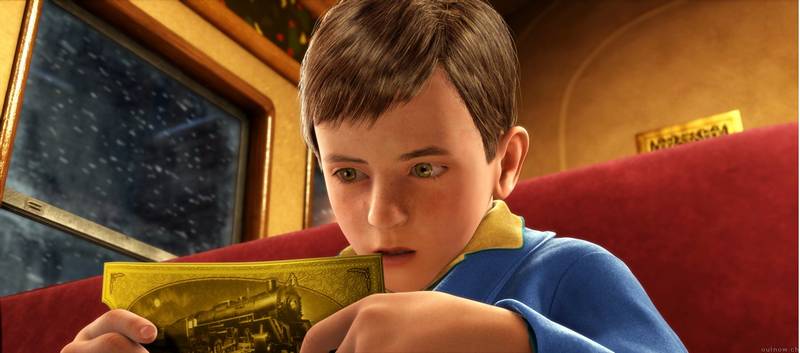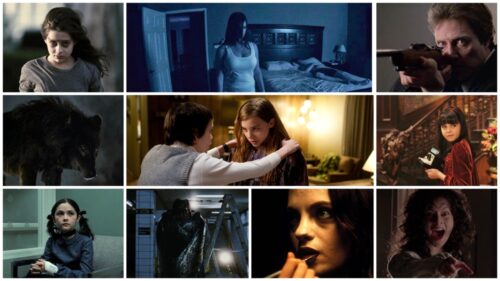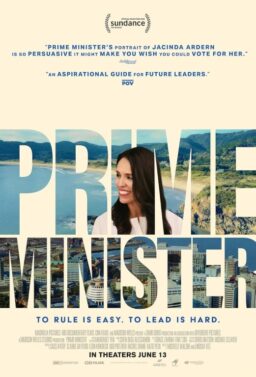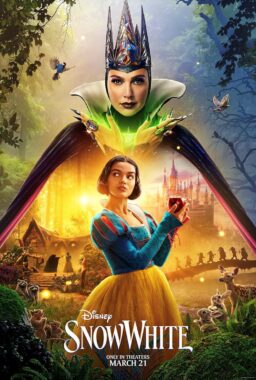I know I’ve seen something atonishing, and I know I’m not ready to review it. “Cloud Atlas,” by the Wachowski siblings and Tom Tykwer, is a film of limitless imagination, breathtaking visuals and fearless scope. I have no idea what it’s about. It interweaves six principal stories spanning centuries–three for sure, maybe four. It uses the same actors in most of those stories. Assigning multiple roles to actors is described as an inspiration by the filmmakers to help us follow threads through the different stories. But the makeup is so painstaking and effective that much of the time we may not realize we’re seeing the same actors. Nor did I sense the threads.
The actors Tom Hanks, Halle Berry, Jim Broadbent, Hugo Weaving, Hugh Grant and Jim Sturgess together portray 14 different characters, and not even sex is a clue because some of their roles cross gender categories. The end credits, which go by a little too fast, will surprise a lot of audience members. Say what? Hugo Weaving plays Nurse Noakes? “Cloud Atlas” has locks on Oscar nominations for best makeup and costume design.
The stories, much adapted and retold from a David Mitchell novel, include characters, times and locations as diverse as a 19th century sailing ship, a futuristic Korea, Aboriginals, young gay intellectuals at Cambridge, a nuclear scientist, a slave, a classical composer and others. There is a good deal of narration, most of it about the nature of human life (and some of it about lives of fabricants). There are chase and action scenes as good or better than the best work by the Wachowskis (the “Matrix” films) and their friend and collaborator Tykwer (“Run Lola Run“). Moment by moment, scene by scene, story by story, I was enthralled.
What did it sum up to? What is the through line? I can’t say. Not today, anyway. Not yet. Maybe there isn’t one. What will its first audiences get out of it? My mind travels back to the first public screening of “2001: A Space Odyssey,” the film the Wachowskis says made them filmmakers, and inspired this one. As Rock Hudson walked out in the middle of the second half, I heard him quite audibly ask, “What the hell was that about?”
“Cloud Atlas” opens nationally October 26.
• • • •
 It’s too soon to declare a trend, but a new silent film once again seems likely to become a success in the fall movie season. “Blancanieves,” a striking new Spanish feature, premieres here Monday at the Toronto Film Festival. Although the story draws on the Brothers Grimm and the legend of Snow White, it is anything but a children’s film. It is a full-bodied, visually stunning silent film of the sort that might have been made by the greatest directors of the 1920s, if such details as the kinky sadomasochism of the Evil Stepmother could have been slipped past the censors.
It’s too soon to declare a trend, but a new silent film once again seems likely to become a success in the fall movie season. “Blancanieves,” a striking new Spanish feature, premieres here Monday at the Toronto Film Festival. Although the story draws on the Brothers Grimm and the legend of Snow White, it is anything but a children’s film. It is a full-bodied, visually stunning silent film of the sort that might have been made by the greatest directors of the 1920s, if such details as the kinky sadomasochism of the Evil Stepmother could have been slipped past the censors.
The delightful “The Artist,” which slipped away with this year’s Academy Award for best picture, cheated a little by having tongue-in-cheek fun with its silence, and even allowing a few words to sneak in. Pablo Berger’s “Blancanieves” exploits the silent medium for its strengths, including the fact that it can so easily deal with fantasy. This is as exciting, in many of the same ways, as the greatest traditional silent masterpieces. It’s a Spanish film, but of course silent films speak an international language.
The story opens with a famous matador, Antonio Villalta, who is filled with swaggering ego. All goes wrong for him. He is paralyzed in the ring, and his beloved wife dies in childbirth. Their daughter, Carmen, is raised by her grandmother until Antonio unwisely marries the heartless Encarna, who wants only his money, ignores him in a wheelchair in his room, and adopts Carmen only to give her a room in the barn and put her to work at hard labor. Encarna, meanwhile, dominates her male assistant in classic boot-and-whip style, and Carmen is able to sneak into the mansion and bond lovingly with her father.
Carmen is forced to escape, wanders in the forest, and is discovered by a troupe of dwarves who travel between cities staging bullfights. They name her Blancanieves, Spanish for Snow White. When one of them is wounded during a fight, she leaps into the ring and distracts the bull, using matador skills she learned from her father. Eventually she, too, becomes a famed matador.
This film is a wonderment, urged along by a full-throated romantic score. Blancanieves is performed lovably by the angelic Sofía Oria when she is a child, and as an adult Macarena García. As with “The Artist,” I believe audiences will discover they like silent films more than they think they do. The silents offer experiences and dimensions different from talking pictures. I believe “Blancanieves” has a fair shot at the festival’s all-important Audience Award.
The film doesn’t yet have an American release date.
• • • •
 Another powerful entry here, “The Sessions,” stars John Hawkes as a man who has spent his life in an iron lung, and now in his 30s wants to lose his virginity. This he attempts to do with the counsel of a priest (William H. Macy) and the attentions of a professional sex surrogate (Helen Hunt). It’s rather remarkable how director Ben Lewin succeeds in making this touchy material so touching and sometimes even funny.
Another powerful entry here, “The Sessions,” stars John Hawkes as a man who has spent his life in an iron lung, and now in his 30s wants to lose his virginity. This he attempts to do with the counsel of a priest (William H. Macy) and the attentions of a professional sex surrogate (Helen Hunt). It’s rather remarkable how director Ben Lewin succeeds in making this touchy material so touching and sometimes even funny.
The film pays close attention to the physical details involved with both the Hawkes and Hunt characters. Questions we may often have asked ourselves are fully, humanely, answered here. At its heart the film is not only about sex but about human affection. Is it possible for these two to succeed without the danger if becoming too fond of each other? This is of particular concern to Hunt’s husband, who she describes as “a philosopher” and who indeed seems to spend much of his time in thought.
Macy’s character, the priest, is intelligently written and given deep sympathy. Without ignoring the teachings of his church about extra-marital sex, he gazes into the eyes of Christ above the altar and decides for himself that the Lord would choose mercy in a case like this. Helen Hunt’s sex surrogate convinces us of her expertise as she guides her client through step by difficult step. John Hawkes, who acts only with his eyes and voice, proves himself once again an actor who can reach effortlessly from a drug-dealing redneck (“Winter's Bone“) to a creepy cult leader (“Martha Marcy May Marlene“) to this man, so helpless and hopeful.
“The Sessions” opens nationally on Oct. 26.
• • • •
Now onsale: The new paperback edition of my memoir, “Life Itself.”.












